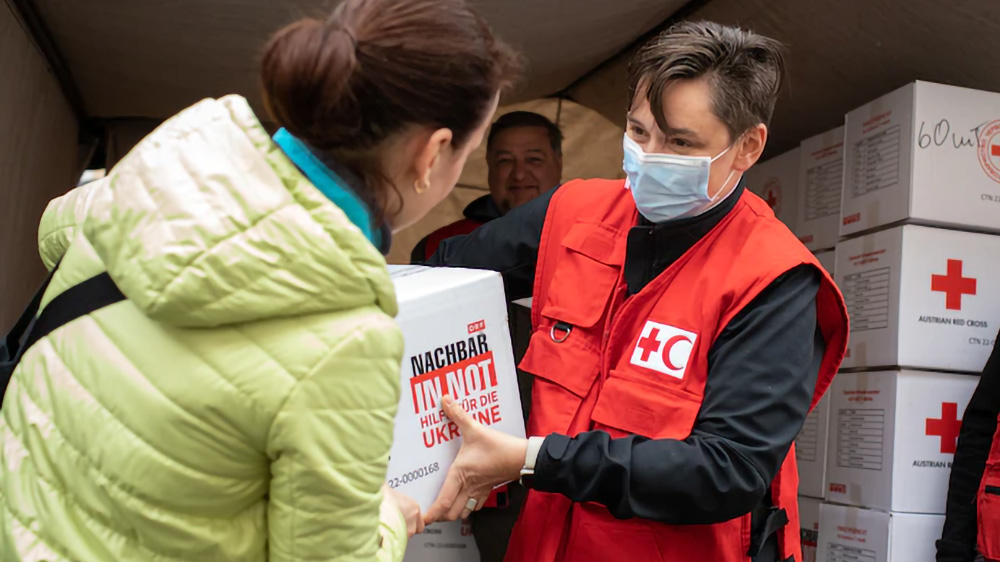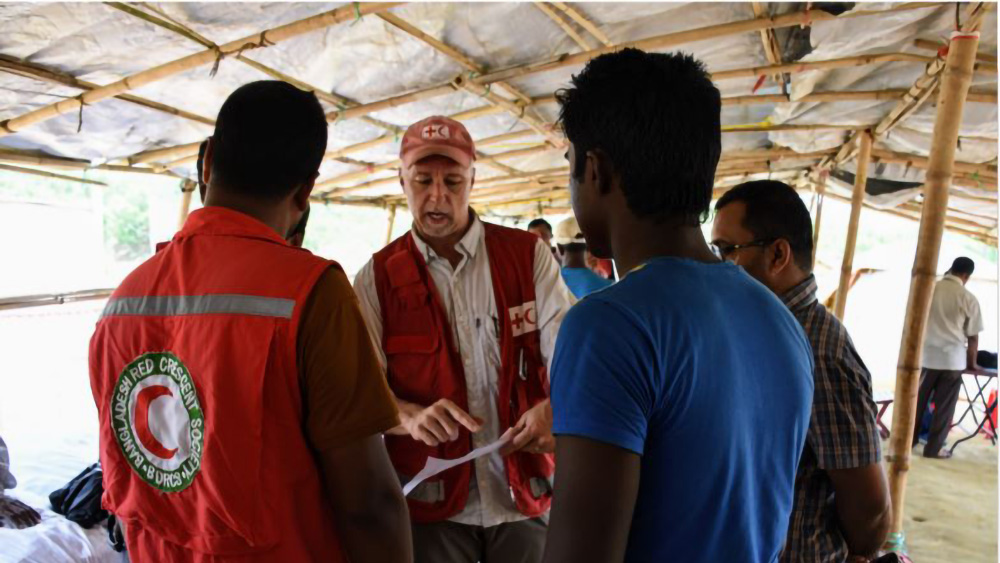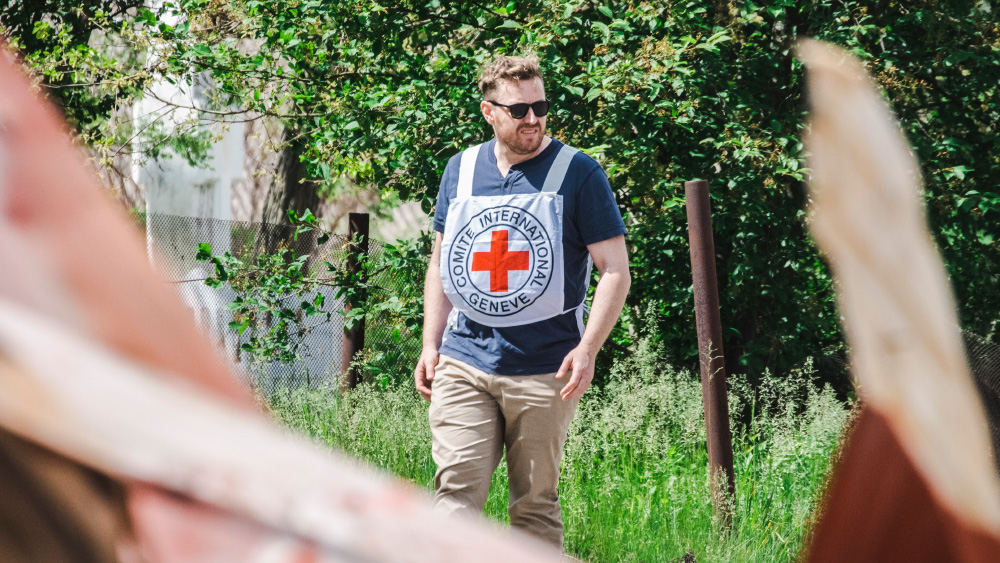Meet our aid workers
Our delegates deployed in waves as the crisis unfolded and entered new phases. Meet just three of them.
Jess Letch Deputy Head of Operations IFRC in Ukraine

Jess says being part of the response from the earliest days brought home to her the distinct strength of the Movement.
“National Societies are present in nearly every country in the world and region. That structure meant we were ready to mobilise in what was the largest movement of people since World War ll. Local volunteers and donated goods were initially activated then we worked to rapidly scale up to provide cash, sustainable shelter, protection and gender and inclusion, food assistance and more.
“This was a crisis of movement of women and children, and we were soon able to welcome children into child-friendly spaces. We needed to be flexible and adapt quickly to ensure children had safe spaces and women had mental health support at a time when they did not know the fate of partners, fathers and brothers.
“It was exciting to be part of the early stages of such a vast emergency operation. As an Australian, a woman, someone who’s worked for a long time in the Red Cross Red Crescent Movement I’m proud to have been part of that team to come in the first days of that crisis response; interpreting where this conflict is going, understanding the landscape, capacities, gaps, driving a strategy to assist the huge numbers of affected people. Guiding the operation as it grew day by day really it was amazing to harness the outpouring of goodwill and international support. I wish we could see that level of support for all people displaced by conflict.”
Don Johnston Operations Manager in Ukraine

“It was humbling,” Don says.
“I also feel deep and abiding sadness for this amazing country and people under existential threat. It was just an honour to be able to stand alongside and assist people trying to help the most vulnerable people in their communities, many of my local colleagues being internally displaced people themselves.”
He says his role saw the response rapidly expand from a budget of 10 to 255 million Swiss Francs. The Movement responded by partnering with the local Ukrainian Red Cross Society branches to add value. Ukraine Red Cross was incredibly active with branches in all provinces responding in conflict areas and supporting the massive influx of displaced people. We helped set up services from mobile clinics, health services, provision of goods and food, group shelters, child protection services, cash assistance at large scale, logistics support, warehouse support, then planning for winterisation.
“Due to the structure of the Movement, we were able to mobilise hundreds of people with the resources to back it up. We went from hiring 4 people to 75, bringing in all the expertise and solidarity of the world.”
Sean Moran Engineer, Ukraine

Sean worked to restore centralised heating and safe drinking water to major population centres including Bucher, Irpin Borodyanka, Dymer and Hostomel.
“The most satisfying part of the work was the infrastructure achievements we made, restoring water, fixing burst sewer mains, and re-establishing communal heating capacity. You can’t just plug an electric heater into the wall like we do here as the wiring isn’t built to cope with that demand. Individuals can’t make their own plans in an apartment building. Even with skyrocketing energy prices the ones who can heat their homes are going to have trouble. A lot of homes are damaged and there’s no point heating them and there’s too many broken windows, holes and so on.
“We were working to support the local utilities – water and public heating companies and councils. It was all led by them as they have the requisite skills, staff and know what they’re dealing with.
The strength of the ICRC was that we were able to step in and fund repairs as the utility companies had limited ability to do this due to so many of their customers having fled.
“The other great thing about the Movement’s work was the access we could achieve. The ICRC was the only international organisation operating in the area for quite some time and we were able to act within days of having access. As well, the ICRC logistics team has materials stored in country and were able to source excavators, water pumps, pipes and so on to really help us respond quickly.
“The ICRC also donated emergency repair materials for thousands of homes, including tarps, timber, hand tools, plastic sheeting, which made an enormous difference to people’s lives. The conflict started in the winter in sub-zero conditions so at least people could weather-proof their homes. After that we started a cash for shelter program, giving cash donations so people could repair the homes themselves more permanently.”
